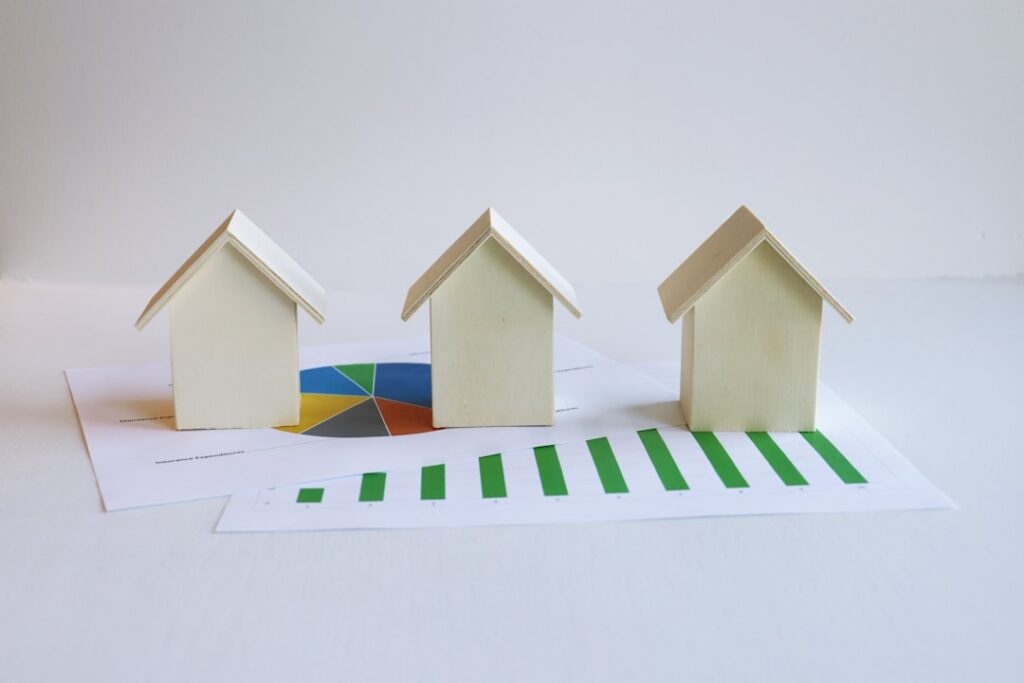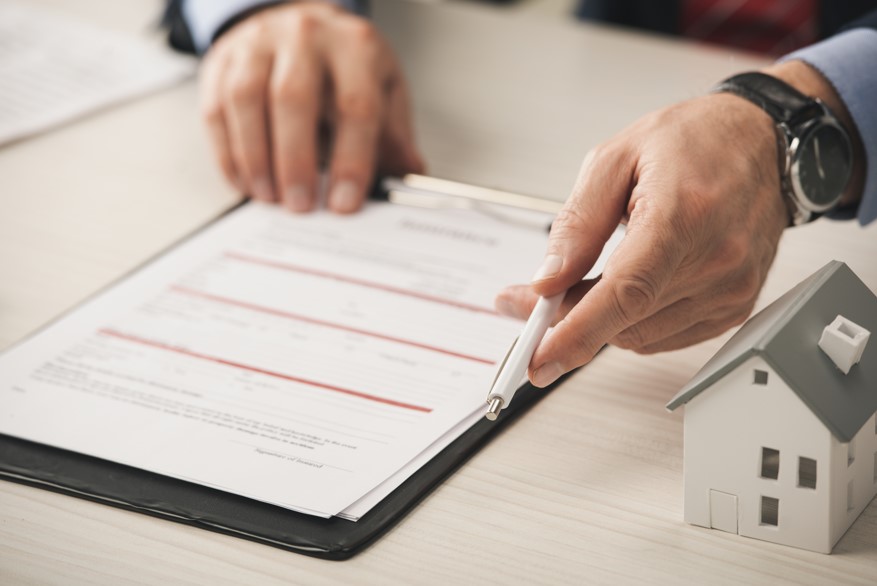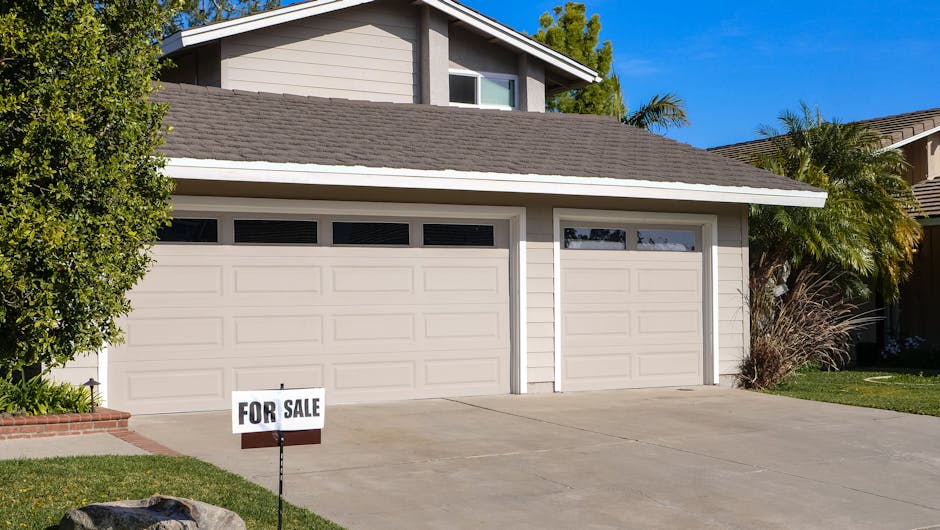
How to Sell a House When You Still Have a Mortgage
Many homeowners ask, “can you sell a house with a mortgage?” The short answer: yes, you can. In fact, selling a home with an outstanding mortgage is a common practice. Let’s dive into why this is and how it works.
- It is common: Most people sell their homes before the mortgage is fully paid off.
- Mortgage payoff: At closing, you must pay off the remaining mortgage balance.
- Equity is crucial: Ensure your home’s sale price covers the mortgage and other selling costs.
In reality, most people who sell their homes have an outstanding mortgage. Having a mortgage does not get in the way of the sale of a home, as long as there is enough equity to pay it off in full at closing.
I’m Scott Beloian, Broker/Owner at Westcoe Realtors. With over two decades of experience in the Riverside market, I’ve helped numerous clients successfully navigate selling homes with mortgages. Let’s explore the steps and key considerations in detail.

Stay tuned for a deeper dive into the specifics of the mortgage payoff process, understanding home equity, and the steps to sell your house seamlessly.
Can You Sell a House with a Mortgage?
Yes, you can sell a house with a mortgage. In fact, it is extremely common. The average homeowner stays in their home for about 13 years, so selling before the mortgage is fully paid off is a normal part of the real estate process.
Selling a house with a mortgage involves several key steps and considerations. Let’s break it down.
Understanding Mortgage Payoff
When you sell your home, you need to pay off the remaining balance of your mortgage. This is known as the mortgage payoff.
First, get a payoff quote. This is a document from your lender that details how much you owe, including your mortgage balance, any fees, and mortgage insurance. You can request this quote through your lender’s automated systems or by contacting them directly. Make sure to add a buffer for any per diem interest charges if you don’t close by the quote’s expiration date.
Your payoff quote will include:
– Mortgage balance: The remaining principal you owe.
– Fees: Any additional charges or penalties.
– Mortgage insurance: If applicable, the remaining balance of your mortgage insurance.
Determining Home Equity
Home equity is the difference between your home’s market value and the amount you owe on your mortgage. It’s crucial to know your home equity because it affects your financial outcome when selling.
There are two types of equity to consider:
1. Earned Equity
– Down payment: The money you initially paid when you bought the house.
– Principal payments: Every mortgage payment you make increases your equity by reducing the principal balance.
Example: If you put 20% down on a $150,000 home, you have $30,000 in instant equity. Every monthly payment you make adds to this equity.
2. Investment Equity
- Market value increase: The appreciation in your home’s value over time.
- Example: If you bought your home for $150,000 and it is now worth $250,000, you have gained $100,000 in equity just from the market value increase.
To determine your home equity:
1. Estimate your home’s current market value. This can be done through a comparative market analysis by a real estate agent or by using online valuation tools.
2. Subtract your mortgage balance from the market value.
Why It Matters
Knowing your home equity helps you understand if you will make a profit when selling. Ideally, you want to sell your home for more than your mortgage balance, so you can pay off the mortgage and keep the remaining proceeds.
If your home sells for less than your mortgage balance, you may need to pay the difference out of pocket. This is why understanding your equity is crucial before listing your home.
Steps to Sell a House with a Mortgage
Step 1: Get a Payoff Quote
The first step in selling a house with a mortgage is to get a payoff quote. This quote tells you how much you need to pay your lender to satisfy your mortgage and release the lien on your property.
To get a payoff quote, contact your lender. Many lenders have automated systems that make this process easy. Your payoff quote will include your mortgage balance, any applicable fees, and the date when the quote expires. Make sure you request a buffer period to avoid per diem interest charges if your closing date changes.
Step 2: Determine Home Equity
Next, you need to determine your home equity. This involves calculating the difference between your home’s market value and your remaining mortgage balance.
Home equity can come from two sources:
- Earned Equity: This is the equity you build by making principal payments. For example, if you put 20% down on a $150,000 home, you start with $30,000 in equity. Each mortgage payment increases this equity.
- Investment Equity: This is the increase in your home’s market value over time. If you bought your home for $150,000 and it’s now worth $250,000, you have $100,000 in investment equity.
Step 3: Market and Sell Your Home
With your payoff quote and home equity determined, it’s time to market and sell your home. A real estate agent can help you price your home competitively based on local market conditions. Their expertise ensures you get the best offers, which can help cover your mortgage balance and other costs.
Step 4: Repay Your Mortgage Lender
Once your home is sold, you need to repay your mortgage lender. Use the proceeds from your sale and make sure to pay any remaining interest promptly. Your primary mortgage lender has the first lien position, so they get paid first.
Step 5: Pay Off Additional Loans and Liens
If you have any other loans or liens, such as second mortgages, HELOCs, or tax liens, you need to pay them off next. Liens stay with the home, not the person, so clearing these is essential for a smooth sale. Ensure you get documentation for each paid lien as proof.
Step 6: Cover Fees and Closing Costs
Selling a house with a mortgage involves various transaction fees and closing costs. These include:
- Real estate agent’s commission: Usually 6% of the final purchase price, split between the buyer’s agent and your listing agent.
- Title policy fee: Protection for the buyer in case of future claims on the property.
- Prorated property taxes: Taxes for the portion of the month you lived in the home before the sale.
Step 7: Keep Remaining Funds
After paying off your mortgage, additional loans, and closing costs, the remaining funds are yours. You can reinvest these funds as a down payment on your next home, which can help you avoid private mortgage insurance (PMI) and build home equity.

Selling a House with Negative Equity
Selling a house with negative equity, also known as being “underwater” or “upside down,” can be challenging. It means you owe more on your mortgage than your home is currently worth. This situation often arises during times of financial hardship or market downturns. However, you do have options to consider.
Waiting for Home Values to Rise
If you do not need to move immediately and are not facing financial hardship, waiting for home values to rise can be a viable option. Real estate markets fluctuate, and your home’s value could increase over time. By waiting, you might reach a point where you can break even or even make a profit when you sell.
Example: In the aftermath of the COVID-19 pandemic, many homeowners saw their property values dip temporarily. However, as the market stabilized, home values began to rise again, allowing some homeowners to sell without incurring a loss.
Talking to Your Lender
If you are struggling to make your mortgage payments, it is crucial to communicate with your lender. They might offer solutions to help you avoid foreclosure, such as:
- Loan Modification: Adjusting the terms of your loan to make payments more manageable.
- Forbearance: Temporarily reducing or pausing your mortgage payments.
These options can provide temporary relief and buy you time to improve your financial situation.
Quote: “Depending on the situation, there is a possibility that your lender may be sympathetic and could offer a loan modification, forbearance, or another arrangement to allow you to avoid foreclosure.”
Selling in a Short Sale
A short sale is another option if you need to sell your home quickly and can’t wait for the market to improve. In a short sale, you sell your home for less than the amount owed on your mortgage. The proceeds go directly to your lender, and they may forgive the remaining balance.
Important Note: Short sales can negatively impact your credit and may include a deficiency judgment, which means you could still owe the remaining balance.
Case Study: Imagine you owe $225,000 on your mortgage, but your home is only worth $215,000. In a short sale, your lender might agree to accept the $215,000 as full payment, even though it doesn’t cover the entire loan amount.
Warning: Short sales can hurt your ability to buy a new home in the future and affect your credit score.
Frequently Asked Questions about Selling a House with a Mortgage
What is a Mortgage Prepayment Penalty?
A mortgage prepayment penalty is a fee some lenders charge if you pay off your mortgage early. This usually applies if you pay off the mortgage within the first 3 to 5 years.
Why do lenders charge this? They want to recoup some of the interest they lose when you pay off early. Not all mortgages have this penalty, so check your loan terms.
If you do have a prepayment penalty, make sure to factor this fee into your calculations when deciding to sell.
How Soon Can You Sell a House After Buying It?
Technically, you can sell your house any time after buying it. There are no legal limitations. However, it’s usually a good idea to wait at least 5 years.
Why 5 years? This gives you time to recoup closing costs, gain tax benefits, and avoid potential prepayment penalties.
Selling too soon might mean you lose money, especially if home prices haven’t increased enough to cover your initial costs.
What Happens if Your House is Worth More Than Your Mortgage?
If your house is worth more than what you owe on your mortgage, that’s great news! This means you have home equity.
Here’s what happens:
- Sell the House: You sell your house for its market value.
- Pay Off Mortgage: Use part of the sale proceeds to pay off your mortgage balance.
- Cover Closing Costs: Pay any closing costs, which can range from 3% to 6% of the sale price.
- Keep Remaining Proceeds: Any money left after paying off the mortgage and closing costs is yours to keep. You can use this for a down payment on your next home, invest, or save.
For example, if your house sells for $300,000, and you owe $200,000 on your mortgage, you could potentially pocket the remaining $100,000, minus any fees and closing costs.
By understanding these key points, you can better navigate the process of selling a house with a mortgage. Next, let’s delve into the detailed steps you need to take to successfully sell your home.
Conclusion
Selling a house with a mortgage is a common and straightforward process. Most homeowners sell their homes before fully paying off their mortgages. As long as you have enough equity in your home to cover the remaining mortgage balance and associated costs, you can sell your home without any issues.
The key steps include getting a payoff quote, determining your home equity, marketing your home, repaying your mortgage lender, paying off any additional loans or liens, covering fees and closing costs, and finally, keeping the remaining funds. Understanding these steps will help you navigate the process smoothly.
At Westcoe Realtors, we pride ourselves on offering personalized, human-centered service to guide you through every step of selling your home. With over 60 years of experience in the Riverside market, we have the local knowledge and expertise to ensure a seamless and successful sale.
Selling a house with a mortgage doesn’t have to be complicated. With the right team by your side, you can achieve your real estate goals and move on to the next chapter of your life.
Ready to sell your home? Discover the Westcoe Realtors difference and let us help you make your real estate dreams a reality.






